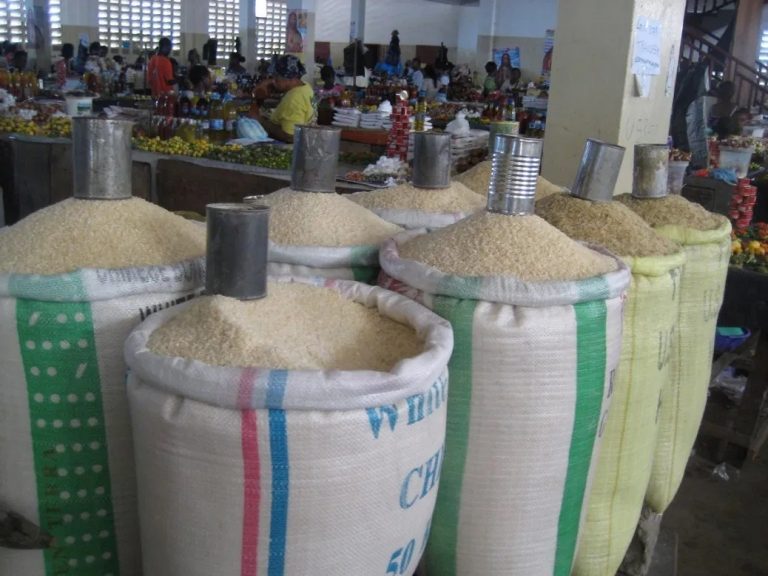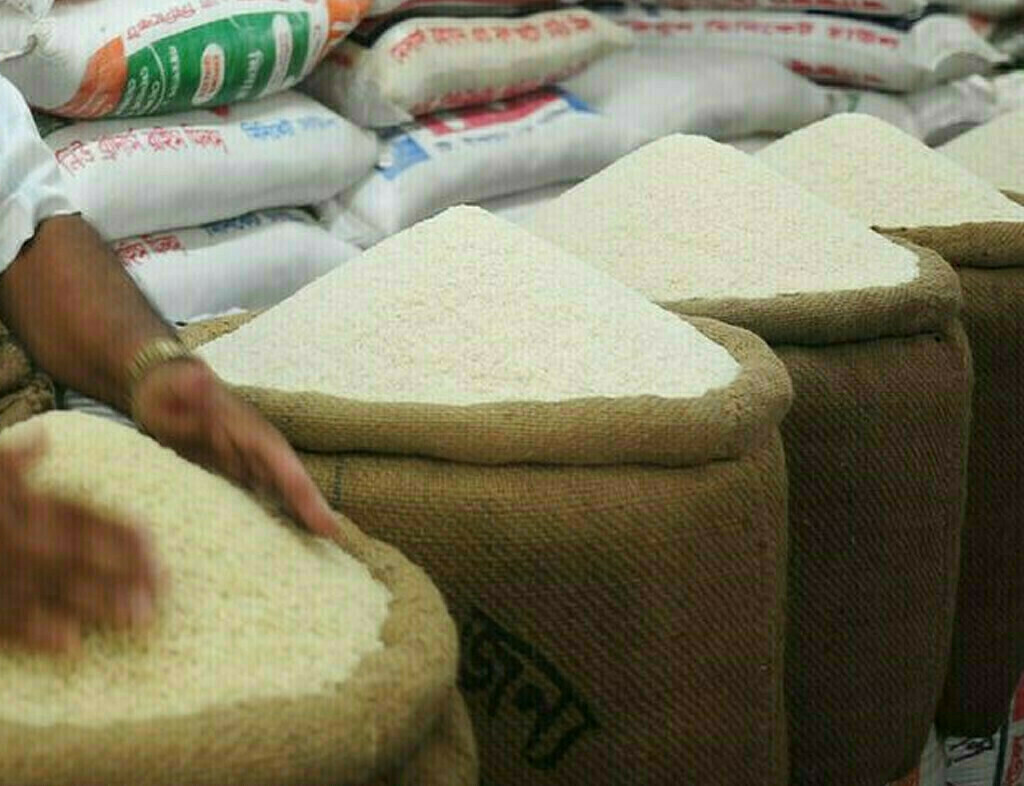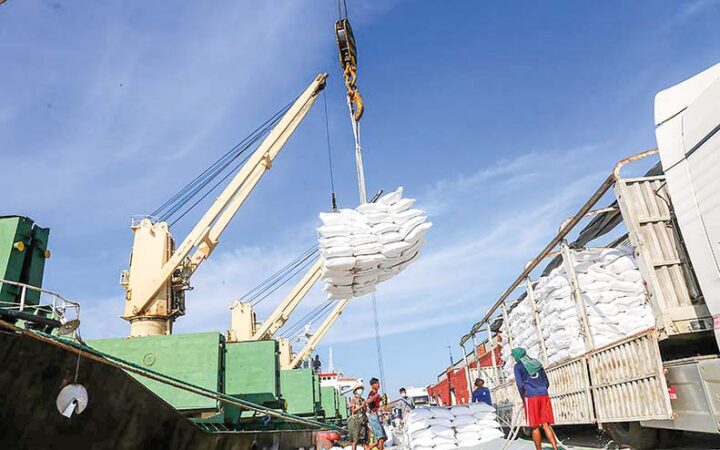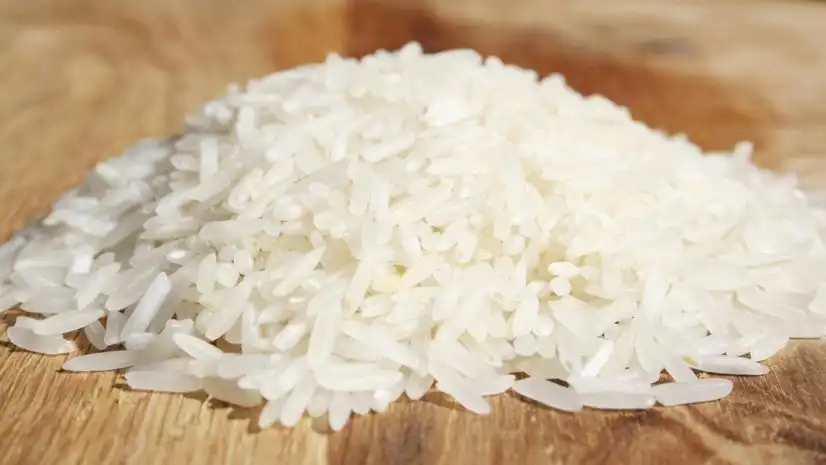Tags
Nigerian Government Considers Paddy Rice Importation To Combat Food Inflation

In response to escalating food inflation, the Nigerian Federal Government is contemplating the approval of paddy rice importation for millers via an Executive Order.
This measure is part of a broader strategy to address the country’s food security crisis, as outlined in the recently submitted draft Accelerated Stabilization and Advancement Plan (ASAP) by the Minister of Finance and Coordinating Minister of the Economy, Wale Edun.
The ASAP document, delivered to President Bola Tinubu, recommends several executive orders aimed at mitigating current economic challenges. These include actions to reduce inflation, generate employment, promote non-oil exports, ensure prudent financial management, and consolidate tax information.
The document’s recommendations for tackling inflation include:
- Suspension of import duty and VAT on specified items
- Importation of paddy rice by millers
- Pegging the import duty exchange rate
Additionally, the plan emphasizes supporting individual and commercial farmers by proposing immediate approval for the importation of rice and maize seeds. Specifically, it suggests importing 10,000 metric tons (MT) of rice seeds to cover 100,000 hectares and 10,000 MT of maize seeds to cover 500,000 hectares. The goal is to onboard two million farmers across four value chains to enhance productivity and sustainability.
However, this proposed plan appears to conflict with President Tinubu’s earlier stance on food imports. Earlier this year, the President declared his administration’s intention to minimize food imports, aiming to transform current challenges into future opportunities. This position was reiterated by the Minister of Information in communications with state governors earlier this year.
Furthermore, President Tinubu had instructed the Nigerian Customs Service (NCS) to enforce the Export Prohibition Act strictly, halting food exports to ensure a steady domestic supply. Targeted food items included rice, maize, beans, and millet.
The Context of Nigeria’s Food Security Crisis
Nigeria is grappling with a severe food security crisis, with food inflation reaching 40.5%. Projections indicate that about 31 million people could face severe food insecurity during the lean season in August.
Over the past year, prices of staple foods, especially grains, have surged by over 100%. For instance, the price of rice rose by approximately 169%, peaking at nearly N90,000 per bag around March and April before dropping by nearly 20%.
Rice millers are struggling with an insufficient supply of rice for processing, and the proposed approval to import rice paddy could significantly boost the supply to markets, potentially reducing prices. Governor Babajide Sanwo-Olu of Lagos State previously highlighted the shortage of rice paddy at the Imota rice mill, which has hampered significant production. He indicated plans to request federal government approval for paddy rice importation to address this shortfall.
While the proposed importation plan aims to provide immediate relief from soaring food prices, it stands at odds with the President’s earlier vision of reducing dependency on food imports.
Government’s Inability to Tackle Insecurity in the North, Culpable
The Nigerian Federal Government’s struggle to address rampant insecurity in the northern regions has significantly contributed to the country’s escalating food crisis.
Insecurity in the northern states of Nigeria, driven by the activities of Boko Haram, bandits, and herdsmen conflicts, has severely disrupted agricultural production. These regions, traditionally known as the breadbasket of Nigeria, have witnessed a significant decline in food production.
Farmers have been forced to flee their homes and farmlands due to incessant attacks and kidnappings, resulting in mass displacement. This displacement has led to a sharp decline in farming activities, significantly reducing overall agricultural output. Abandoned farmlands, left uncultivated out of fear of attacks, have left vast areas of arable land unused. Additionally, these disruptions have severely impacted supply chains, exacerbating the crisis in the agricultural sector.
The combined effects of reduced agricultural production and disrupted supply chains have led to a notable increase in food prices and a heightened state of food insecurity. Key staple crops such as rice and maize have seen significant price hikes due to the shortage of locally produced goods. Insufficient domestic production resulted in high demand, thereby escalating food inflation.
https://www.tekedia.com/nigerian-government-considers-paddy-rice-importation-to-combat-food-inflation/Published Date: June 5, 2024






